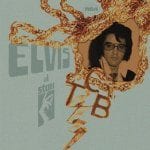Dolly Parton – Dolly [Box Set]
Dolly Parton – Dolly (Sony Legacy)
Quick Take: 4-discs; nearly 5 hours of music; multi-label compilation spanning 1957-1993; superb, rarely heard early sides; deep helping of RCA catalog; select tracks from Columbia catalog; solos and duets; 8 previously unreleased tracks; 62 page booklet featuring a new 5,000-word biographical essay, vintage pictures and record cover reproductions. Missing are Parton’s trio work with Emmylou Harris and Linda Ronstadt, and her terrific post-1993 back-to-basics work on MCA and Sugar Hill.
Dolly Parton’s outsized personality has occasionally obscured the fact that she’s one of America’s all-time greatest songwriters and an exceptional vocalist who effortlessly crossed from country to pop and back again. Her early years as Porter Wagoner’s girl singer and duet partner, her television fame, her climb to solo country stardom, her painful split with Wagoner (brilliantly memorialized in her parting “I Will Always Love You,” a three-time hit for Parton and a worldwide chart-topper for Whitney Houston), her crossover to pop, Hollywood filmmaking and theme parks, and finally, her return to country and bluegrass roots have shown Parton to be an artist of unparalleled vision, depth and humanity.
Parton’s commercial success has stretched over four decades, including an incredible string of hit singles (including 25 U.S. #1s) and albums (including 42 U.S. top-10s and 6 chart-toppers), and multiple live recordings, soundtracks and collaborations. She’s won gold and platinum records, Grammys, AMAs, CMAs, ACMs, and has been nominated for Oscar, Tony and Golden Globe awards. She’s a member of the Grand Ole Opry, the Nashville Songwriters Hall of Fame, and the recipient of numerous national awards and tributes. Yet, with all the fame and honors, Parton has remained true to her rural upbringing in the hills of Tennessee, frequently returning to the hard lessons of her youth for inspiration and guidance. The values instilled by her dirt-poor upbringing have informed both her life and her art, as she frequently put stories and lessons from her childhood to song.
Among the most surprising aspects of Parton’s recording career is how spottily her catalog has been kept in print or reissued. Numerous hits collections have found issue and reissue (including the excellent Essential set in 2005), and more recently a few original albums have been reissued on CD, but much of her RCA album catalog has remained in the vault, and until now, no major career-spanning (and more importantly, label-spanning) box set had been issued. RCA Legacy solves the latter problem with this superb 4-disc, 99-song set. The collection comes with a 60-page booklet that includes an introductory essay from singer-songwriter Laura Cantrell, a 5,000-word biography by Holly George-Warren, period photos and reproductions of many of Parton’s album covers.
More importantly, the 4 CDs cover a big helping Parton’s career, including rare late-50s pre-teen sides on Goldband, early work for Mercury and Monument, a generous helping from nearly two decades on RCA, and a smattering of tracks from her years on Columbia, ending with 1993’s “Romeo.” Missing are sides from her 1998 back-to-basics album Hungry Again, the inventive releases she cut for Sugar Hill in the ‘90s and ‘00s, and last year’s Backwoods Barbie. So while it’s not a complete portrait, the ready availability of these later albums suggests their omission made room for the rare early works, deeper album cuts and seven previously unreleased recordings, while still maintaining the core hit material one would expect of a mainstream box set.
Those who’ve hung on to their original LPs or snapped up CD reissues will duplicate a good deal of Parton’s hits, but there are many new riches here. The eleven-year-old Parton’s voice is faintly recognizable on the 1957 Goldband single “Puppy Love” and its flip, “Girl Left Alone.” The A-side is an original rockabilly tune, co-written with her uncle Bill Owens (with whom she’d also write her first charting song, Bill Phillips’ “Put it Off Until Tomorrow,” also included); the B-side is an original country ballad, again written with Owens. Parton’s voice is juvenilely high and thin, but she was already singing with tremendous feeling. The previously unreleased “Gonna Hurry (As Slow As I Can)” is a finished ’50s-styled ballad that sounds to be from a couple years later. The pre-teen edge to Parton’s voice was giving way to the trilled edge that would come to define her singing.
Skipping forward five years to 1962, Parton cut a single for Mercury while still in high school. The A-side “It’s Sure Gonna Hurt,” co-written again by Parton and Phillips, perfectly evokes the pain of a teenager’s broken heart with the mid-tempo countrypolitan-pop sound of Brenda Lee and Connie Francis. The B-side “The Love You Gave” continues the romantic turmoil, and the unreleased session side “Nobody But You” finds Parton adding a hint of rockabilly with her upper range. By 1965 Parton was signed to Monument, who groomed her as a teen pop star. Among the highlights here are the brilliant Shangri-Las styled “Don’t Drop Out,” complete with a dramatically spoken intro, and the obscure Goffin-King composition “I’ve Known You All My Life.” None of these made the charts, but Parton sounds so convincing and at-home, you can hear why they tried.
Having failed to break her as a pop star, Monument let Parton record country, releasing her first two charting singles “Dumb Blonde” and “Something Fishy,” as well as her debut album, Hello, I’m Dolly. Parton’s songwriting emerged fully formed in songs of hurting and abandoned women, home-spun morals, and the colorful characters of rural life. She soon departed for RCA, but left enough tracks in the vault for Monument to issue a second album in 1970. Parton stayed at RCA for nearly two decades, her career initially shepherded closely by Porter Wagoner, with whom she recorded numerous duets. One listen to their chemistry on a 1967 cover of Tom Paxton’s “Last Thing on My Mind” makes it clear just how painful their separation must have been for Wagoner. The loss of her business may have stung, but the departure of such a feeling duet partner must have really hurt.
Parton’s solo sides, whether originals or pulled from Nashville songwriters, continued to make emotional strides to self-awareness (and eventually self-empowerment) as her downtrodden women took clear-eyed stock of their situations. Parton’s original, “The Bridge,” depicts a relationship’s pastoral beginnings and tragic, helpless ending, but the title track of Just Because I’m a Woman, calls out the hypocrisy with which women were treated. Her RCA catalog fills out disc one, all of discs two and three, and nearly half of disc four with hits, lower-charting singles and lesser-known but no less rewarding album tracks. This is easily the most expansive view you’ll find of her development as a songwriter and singer. The volume of quality original material and the imaginative range of her subjects are staggering, and the new fire she brings to chestnuts like Jimmie Rodgers’ “Muleskinner Blues” is just as impressive.
Even after splitting with Wagoner in 1976 the hits kept coming. Parton’s first self-produced album, New Harvest… First Gathering was recorded in Los Angeles and edged “Light of a Clear Blue Morning” onto Billboard’s Hot-100. Her next LP, Here You Come Again, sprung its title song to #2 on the adult contemporary chart and #3 on the Hot 100. Hollywood Dolly really hit her crossover peak in the early ‘80s with “9 to 5,” a cover of the First Edition’s “You Know I Love You,” “Islands in the Sun,” and a modernized remake of the Drifters’ “Save the Last Dance For Me.” In contrast to the box set’s first two discs, Parton’s crossover material is often taken from other songwriters’ pens, and doesn’t ring as heartfelt or close-to-the-bone as her earlier works. Still, even among the mainstream pop she dropped the home-spun “Applejack” and “Old Flames Can’t Hold a Candle to You,” the gospel-tinged “Do I Ever Cross Your Mind,” and the superb “Tennessee Homesick Blues” from the Rhinestone film soundtrack.
By the middle-80s Parton’s production had fallen into others’ hands, and they increasingly surrounded her with synthetic drums and synthesizers. Parton herself was still in fine voice, but the chill in the instrumental backings didn’t connect with or amplify her personal warmth, and the arrangements have aged poorly. A switch to Columbia in the late ‘80s returned Parton to country songwriting and more timeless pop productions. Disc four’s closing eight tracks, drawn from albums recorded between 1988 and 1993, restore Parton’s identity as a songwriter, and Ricky Skaggs’ production (which drew on some hot-picking bluegrass musicians) for White Limozeen was the most sympathetic she’d had in several years. Many of Parton’s fans will enjoy the entire tour through the first thirty-seven years of her career, but those mostly enchanted by the country sides will find themselves skipping her late-70s and early-80s pop material. Don’t miss the Columbia sides on disc four, though, as they’re superb.
Leaving off Parton’s resurgent sides for Sugar Hill keeps this box from being a complete portrait to date. Her work on Columbia shows the artistic well far from dry, and her return to basic productions and bluegrass backings in the ‘90s and ‘00s are an important chapter in her stll-lively career. Still, these four discs amply demonstrate that Parton is much more than a singer and songwriter: she’s a folklorist, cultural anthropologist, family historian, philosopher and memoirist. Her autobiography, Dolly: My Life and Other Unfinished Business, is a good read, but can’t possibly offer the emotional richness of songs like “My Tennessee Mountain Home” or “Coat of Many Colors.” What’s really missing, and what Parton’s fans long for, are original album reissues of her entire RCA and Columbia catalogs. Bear Family, are you listening?
Technical notes: All tracks stereo except 1-8, 10, and 13-14. Track 23, “Daddy,” has a mastering error at 1:06 that causes the volume to flair briefly.




